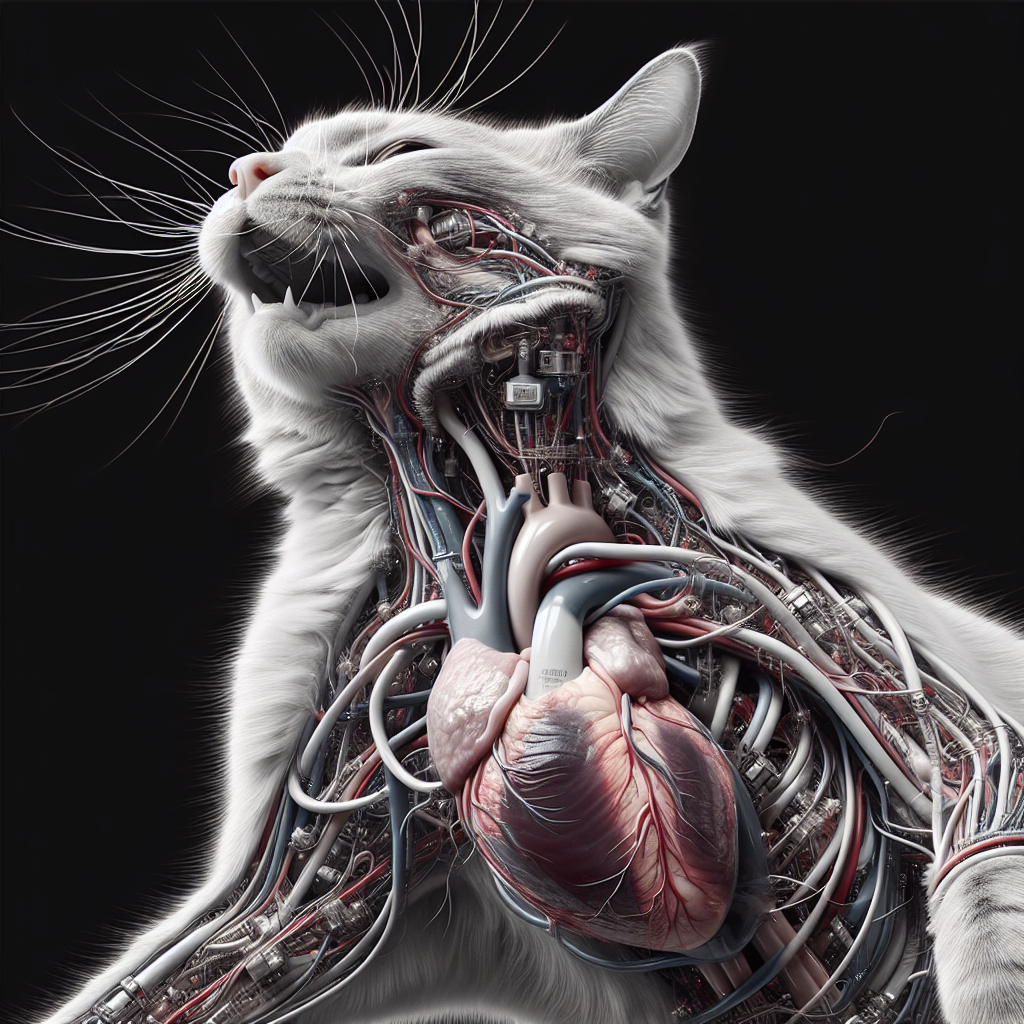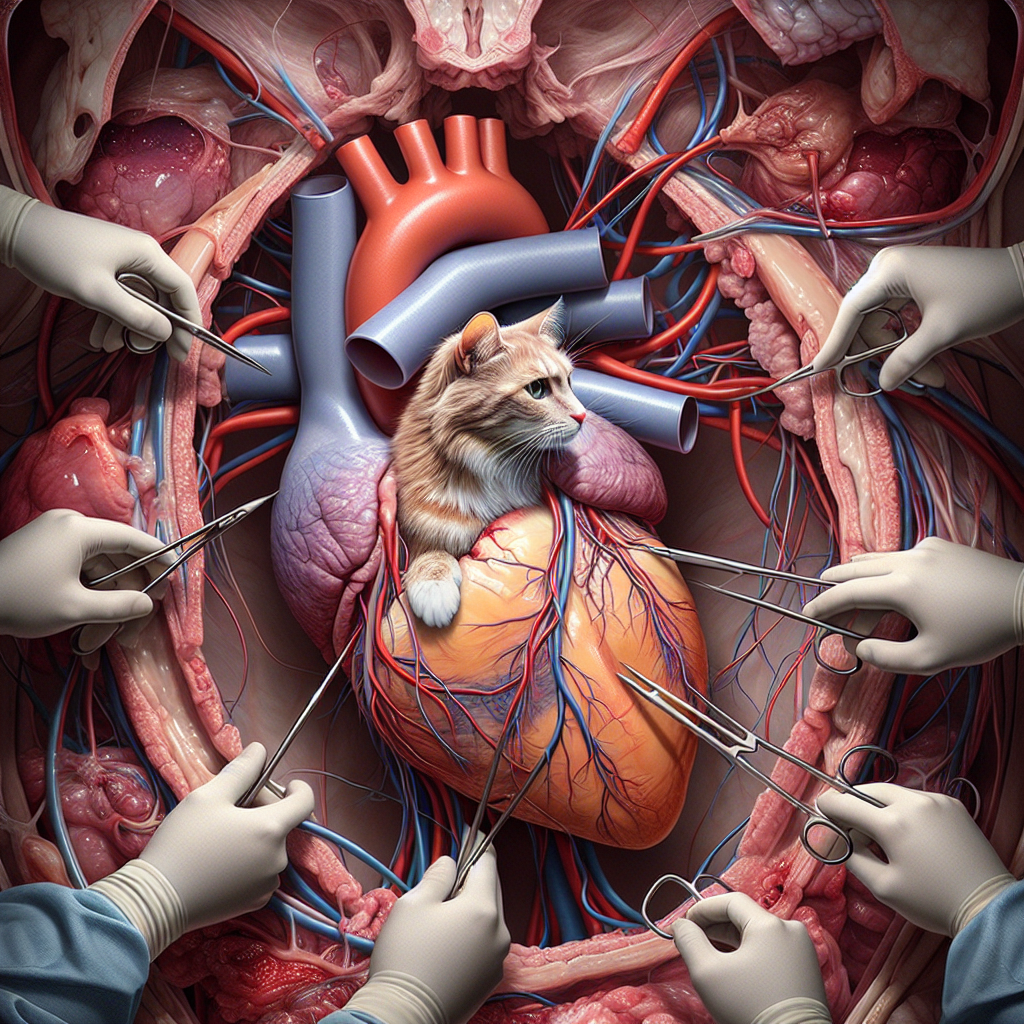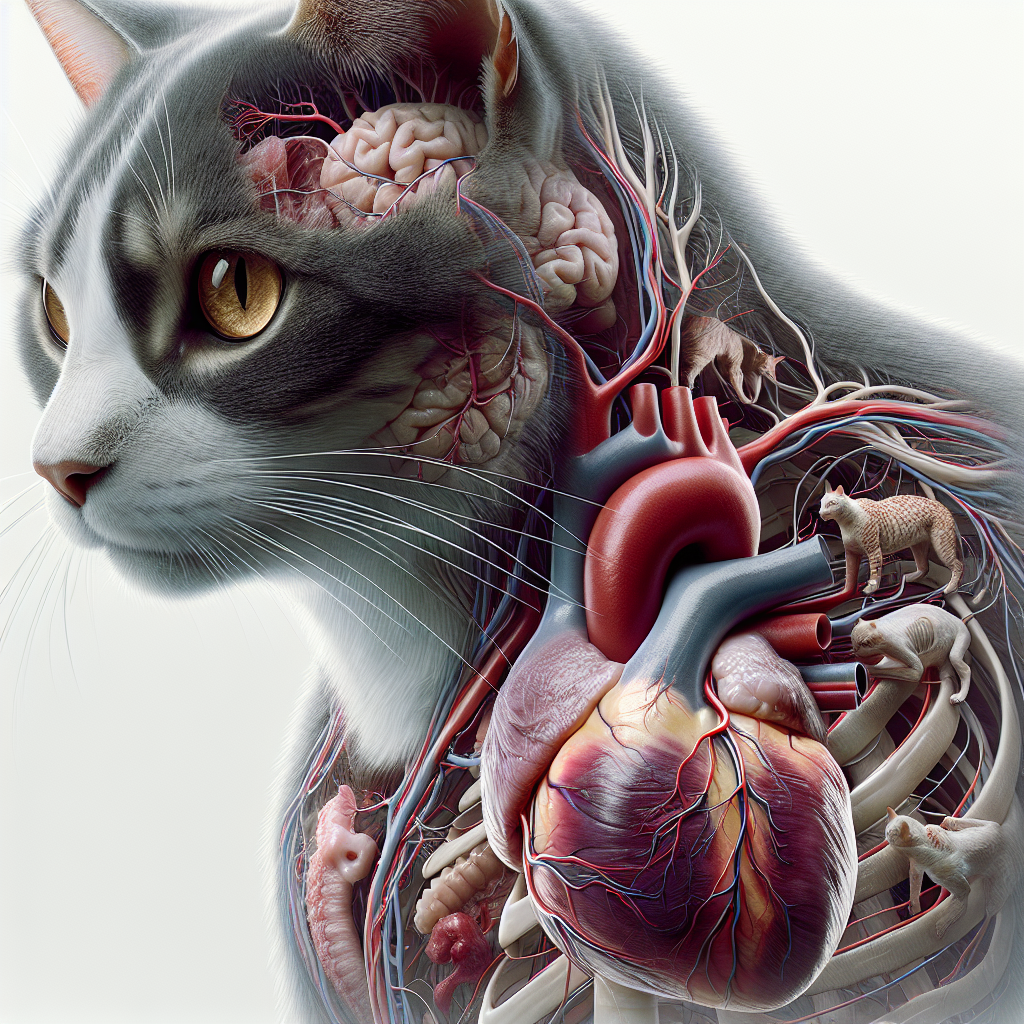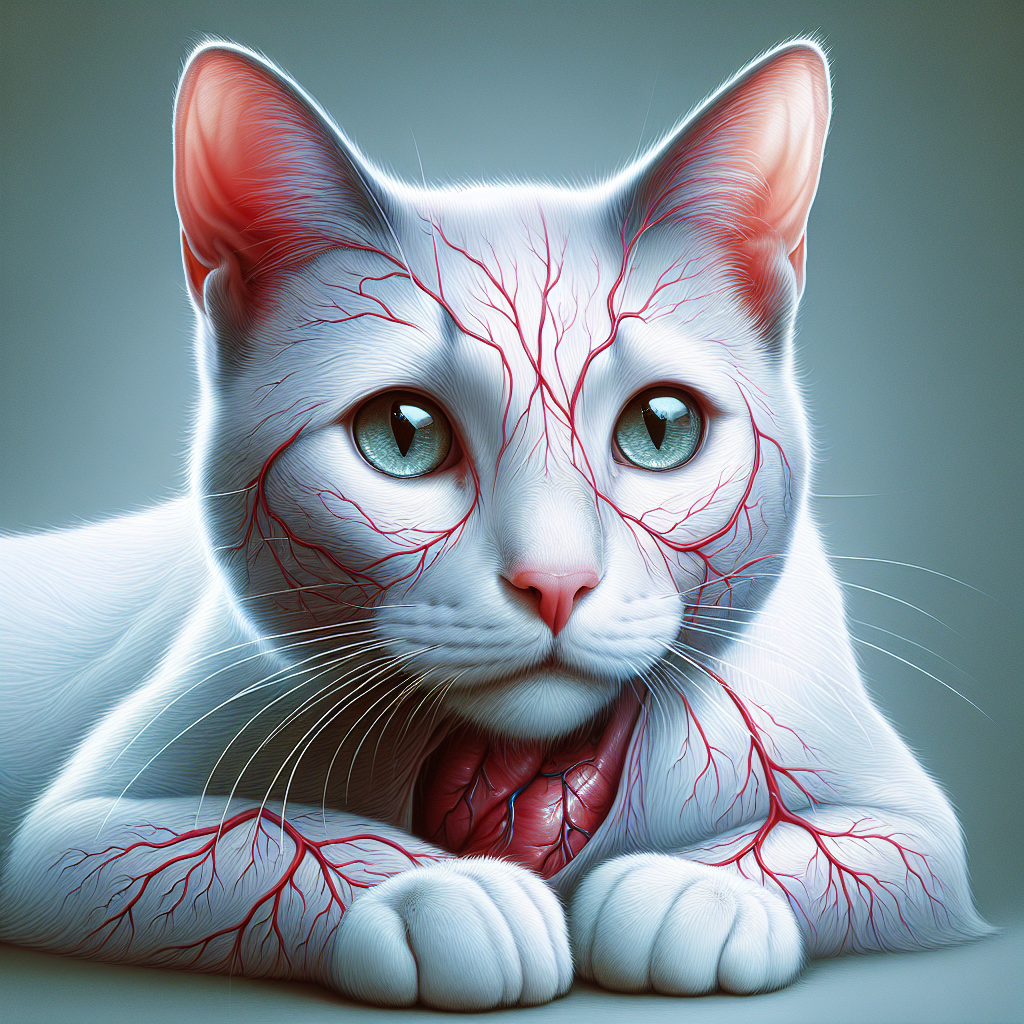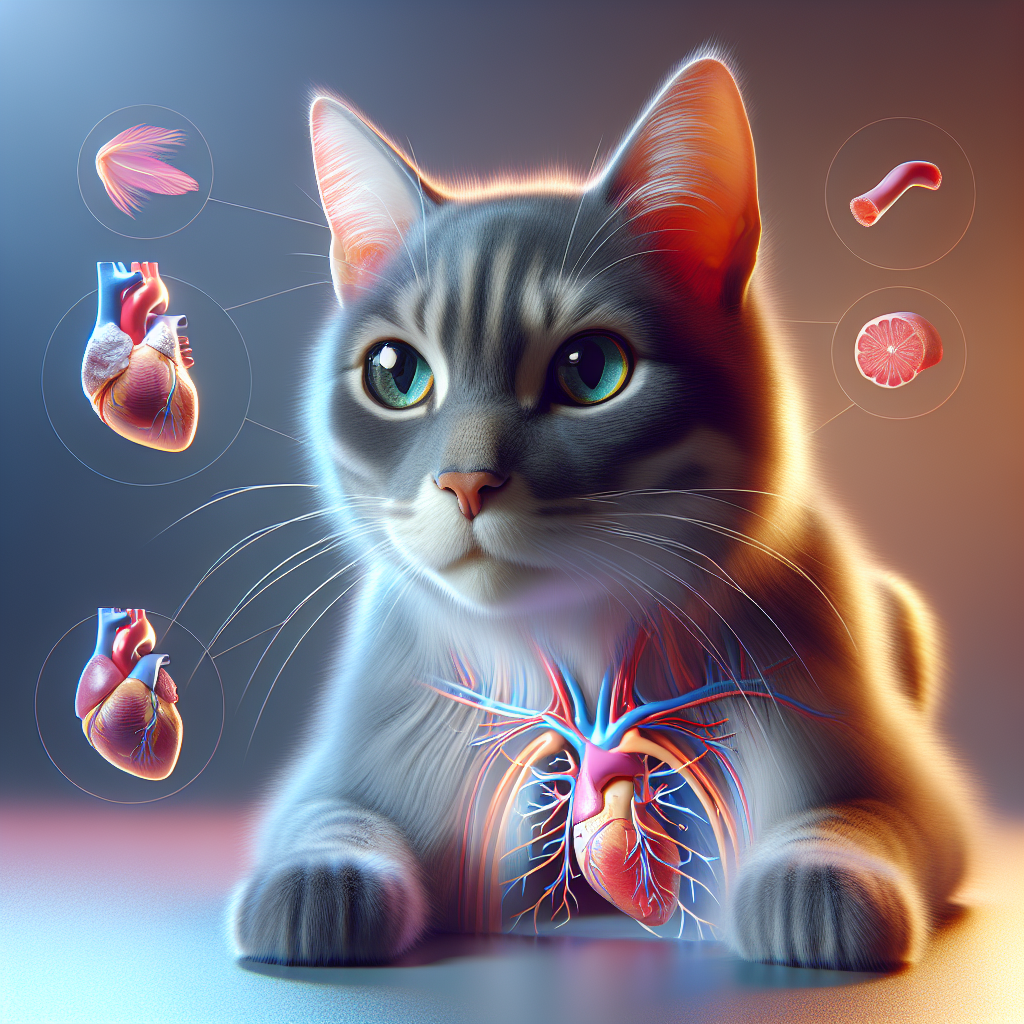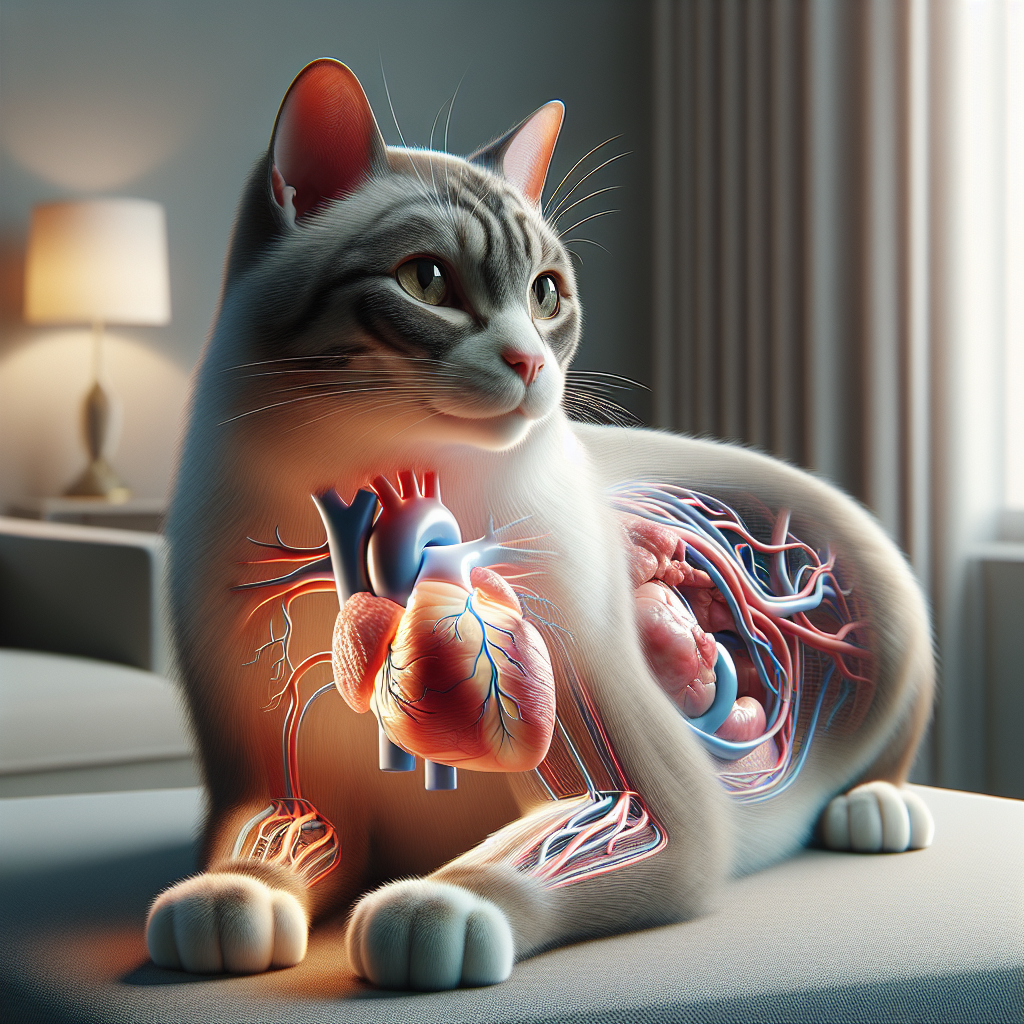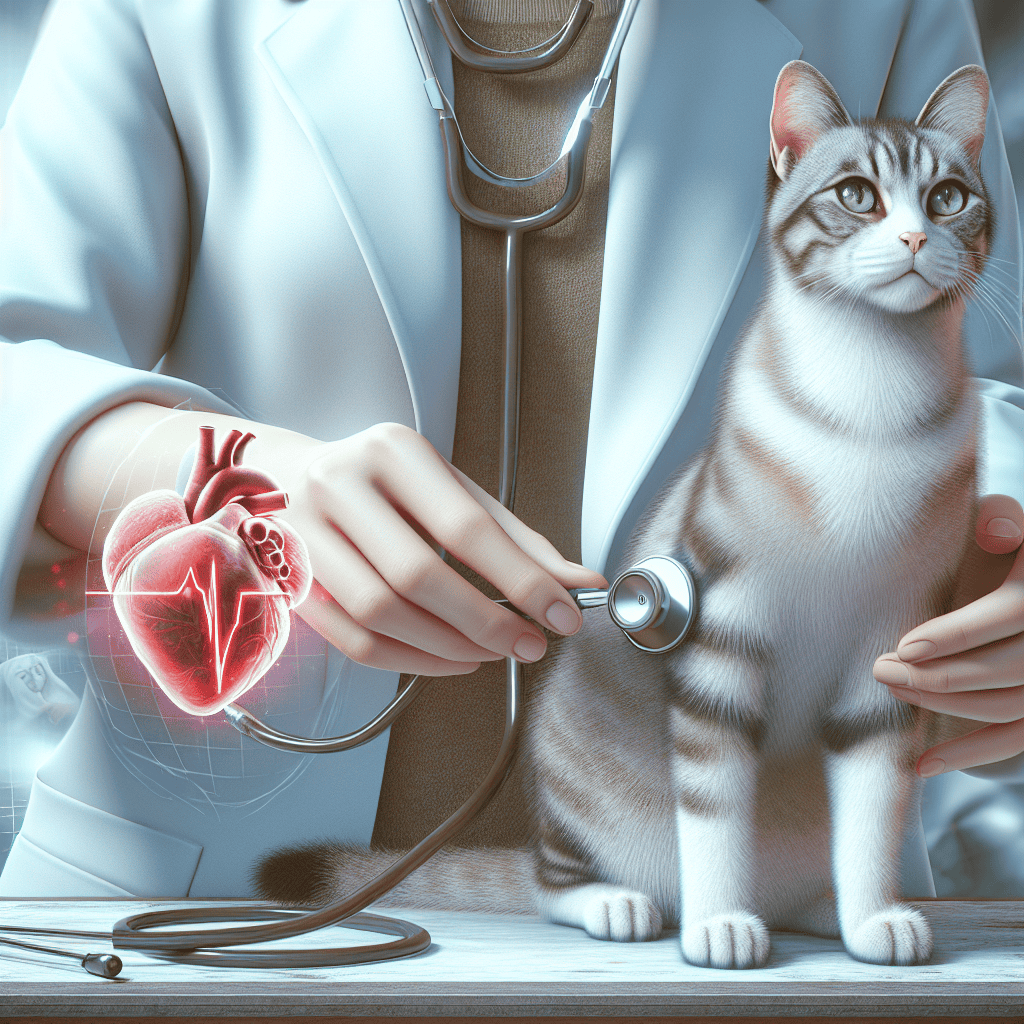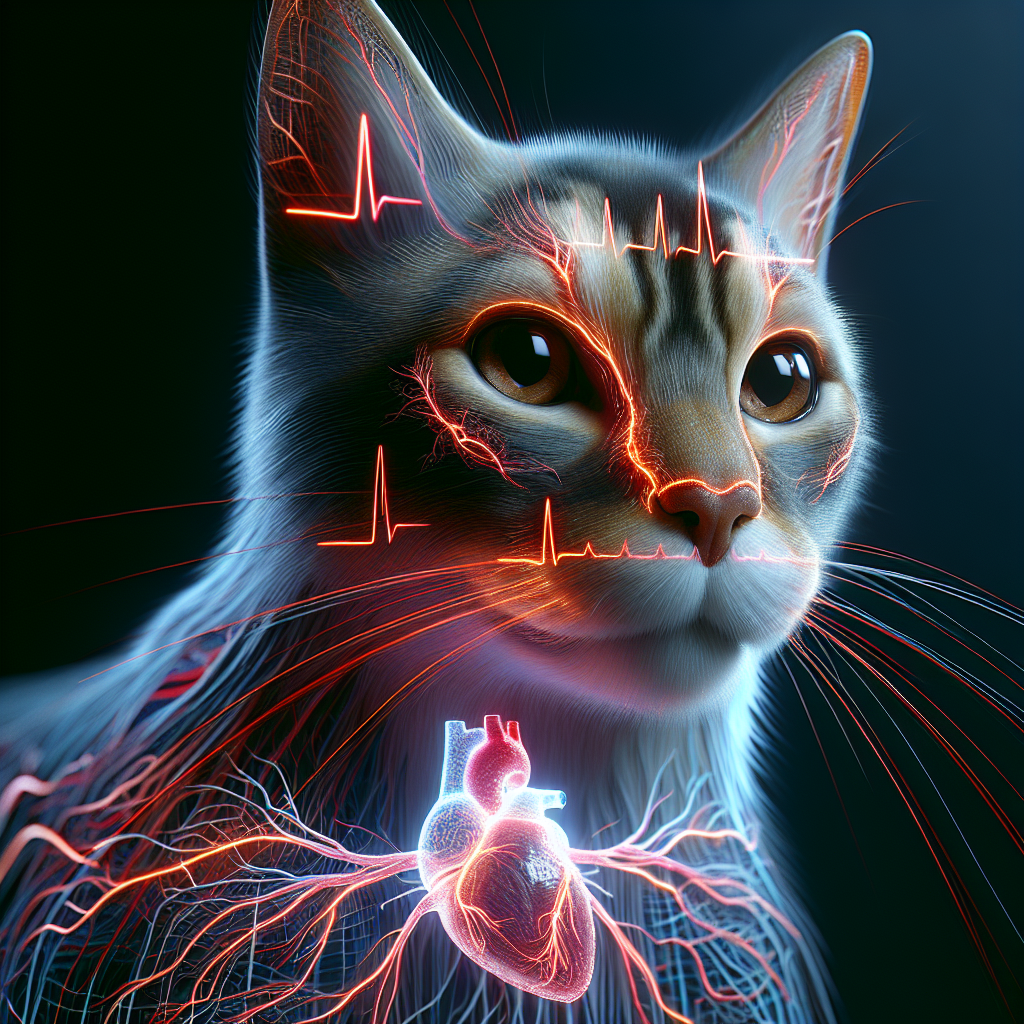Understanding Heart Murmurs in Cats
Heart murmurs in cats are abnormal sounds heard during the heartbeat cycle. These murmurs are caused by turbulent blood flow through the heart, which can be due to various factors such as heart valve malfunctions, holes in the heart walls, narrowing of blood vessels, or thinning of the blood. These murmurs can be classified based on their causes and severity.
Causes of Heart Murmurs
Heart murmurs in cats can be congenital (present at birth) or acquired at any point in life. Congenital heart murmurs are often associated with congenital heart disease in cats, which means the kitten was born with a structural abnormality in the heart. These structural abnormalities can include issues such as heart valve malformations or holes in the heart walls. On the other hand, acquired heart murmurs can develop later in life and may be benign or linked to heart disease like cardiomyopathy.
The causes of heart murmurs in cats can vary, and they may be related to conditions such as anemia, high blood pressure, heart defects, heart valve deficiencies, blood clots, heartworm disease, or infections of heart valves. Identifying the underlying cause of the heart murmur is essential for determining the appropriate treatment approach.
Classification of Heart Murmurs
Veterinarians use a grading system to classify heart murmurs in cats based on their loudness. The grading scale ranges from 1 to 6, with Grade I being barely audible and Grade VI being the loudest, often accompanied by a noticeable vibration felt when touching the chest wall (PetMD). This classification helps veterinarians evaluate the severity of the heart murmur and its potential impact on the cat’s health.
It’s important to note that heart murmurs are typically found incidentally during a routine physical examination and may not cause any symptoms until heart disease progresses. However, as the disease progresses, symptoms may include chronic weight loss, coughing, exercise intolerance, and changes in breathing patterns (PetMD).
Understanding the causes and classification of heart murmurs is the first step in managing and treating these conditions. It’s crucial to work closely with a veterinarian to diagnose the underlying cause, assess the severity of the murmur, and develop an appropriate treatment plan. Early detection and intervention can help improve the prognosis and overall quality of life for cats with heart murmurs.
Identifying Heart Murmurs in Cats
When it comes to cat heart murmurs, early identification plays a crucial role in managing the condition and ensuring the well-being of your feline friend. Recognizing the symptoms and seeking a proper diagnosis are essential steps in the process.
Symptoms of Heart Murmurs in Cats
Heart murmurs in cats are often discovered incidentally during routine physical examinations. In the early stages, they may be asymptomatic and go unnoticed. However, as heart disease progresses, symptoms may start to manifest. It’s important to be aware of these potential signs, which may include:
- Chronic weight loss
- Coughing
- Exercise intolerance
- Increased respiratory rate
- Changes in breathing patterns
The severity of symptoms can vary depending on the underlying cause and the progression of heart disease. In severe cases, cats may experience congestive heart failure or blood clots, leading to more critical symptoms such as collapse or paralysis of the hind limbs.
Diagnosis of Heart Murmurs in Cats
To properly diagnose a heart murmur in a cat, a comprehensive approach is necessary. The diagnosis typically involves a combination of the following:
- Physical examination: A veterinarian will listen to the cat’s heart using a stethoscope to detect the presence of a murmur and assess its characteristics.
- Blood work: This may include a complete blood count (CBC) and a biochemical profile to evaluate the overall health of the cat and check for any underlying conditions.
- Cardiac proBNP testing: This blood test helps determine the severity of heart disease and assess the risk of congestive heart failure.
- Chest radiographs (X-rays): These images provide insights into the size and shape of the heart and can help identify any abnormalities.
- Echocardiogram: This ultrasound examination provides detailed information about the structure and function of the heart, allowing for a more accurate diagnosis.
- Electrocardiogram (ECG): This test measures the electrical activity of the heart, helping to identify any rhythm abnormalities.
- Doppler blood pressure measurement: This technique assesses the blood pressure in various areas of the body and can provide additional information about the heart’s function.
By utilizing these diagnostic tools, veterinarians can determine the underlying cause and severity of the murmur, enabling them to develop an appropriate treatment plan. It’s important to consult with a veterinarian who specializes in feline heart conditions to ensure accurate diagnosis and the best possible care for your cat.
Identifying and diagnosing heart murmurs in cats are essential steps in managing their health. With early detection and appropriate treatment, you can help provide the necessary care to support your cat’s well-being. If your cat is showing any symptoms or you suspect the presence of a heart murmur, consult with a veterinarian as soon as possible for a thorough evaluation and guidance on the next steps to take.
Treatment Options for Heart Murmurs
When it comes to treating heart murmurs in cats, the approach will depend on the underlying cause and severity of the murmur. While some heart murmurs may not require treatment, others may necessitate management strategies to improve the cat’s overall health and prognosis.
Management Strategies
For physiologic heart murmurs, which are innocent murmurs commonly found in young cats, treatment is typically not necessary. However, regular monitoring is advised to ensure that no other problems develop. These murmurs often resolve on their own as the cat matures.
On the other hand, heart murmurs caused by underlying cardiac disease or structural abnormalities may require specific treatment. The goal of managing these murmurs is to address the underlying condition and alleviate symptoms, if present.
Treatment options for heart murmurs in cats may include:
-
Medications: Depending on the underlying cause, medications may be prescribed to manage the cat’s condition. These may include diuretics to reduce fluid retention, vasodilators to widen blood vessels, or medications to regulate heart rhythm.
-
Specialized diets: In some cases, a specialized diet may be recommended to support heart health and manage the cat’s condition. These diets are formulated to provide appropriate nutrition while reducing the workload on the heart.
-
Supportive care: Additional supportive care measures may be implemented to improve the cat’s overall well-being. This may include managing weight, ensuring regular exercise, and addressing any other concurrent health issues.
Prognosis
The prognosis for cats with heart murmurs can vary depending on the cause of the murmur. Physiologic murmurs generally have a good prognosis, as they are innocent and often resolve on their own. However, murmurs caused by underlying cardiac disease may have a variable long-term prognosis.
It is essential to consult with a veterinarian to determine the underlying cause of the heart murmur and develop an appropriate treatment plan. Regular monitoring and follow-up visits will help assess the cat’s response to treatment and make any necessary adjustments.
In some cases, more advanced treatment options, such as feline heart surgery, may be considered for cats with severe structural abnormalities or congenital heart diseases. These interventions are typically performed by board-certified veterinary cardiologists and require careful evaluation and consideration.
Remember, each cat’s situation is unique, and the treatment approach should be tailored to their specific needs. Working closely with a veterinarian will ensure that the most appropriate management strategies are implemented, improving the cat’s quality of life and overall prognosis.
Understanding the available treatment options and the prognosis associated with heart murmurs in cats is crucial for providing the best possible care and support for your feline companion.
Differentiating Innocent and Pathologic Murmurs
When it comes to cat heart murmurs, it is important to differentiate between innocent and pathologic murmurs. Innocent murmurs, also known as physiologic murmurs, are usually benign and have no impact on the cat’s health. These murmurs are often found in young growing kittens and may disappear by about 4-5 months of age (VCA Hospitals).
Innocent murmurs typically have a low intensity, ranging from Grade I to II on the murmur scale. They are not accompanied by any symptoms or clinical signs, and the cat’s overall health remains unaffected. These murmurs may first appear at around 6-8 weeks of age in rapidly growing kittens. As the kittens continue to develop, the innocent murmur tends to fade away VCA Canada.
On the other hand, pathologic murmurs are abnormal and can indicate underlying heart conditions or structural abnormalities. These murmurs are usually associated with other symptoms and clinical signs, such as heart failure or difficulty breathing. Pathologic murmurs can occur at any age and may require further diagnostic testing, such as echocardiography, to identify the underlying cause.
To differentiate between innocent and pathologic murmurs, veterinary professionals carefully assess the intensity, timing, and characteristics of the murmur. Innocent murmurs are typically soft, short, and systolic (occurring during the contraction phase of the heart). Pathologic murmurs, on the other hand, can be louder, longer, and may occur throughout the cardiac cycle. Further diagnostic tests, such as X-rays, electrocardiograms (ECG), or even feline heart surgery, may be necessary to determine the exact cause and severity of a pathologic murmur (congenital heart disease in cats).
If you suspect your cat has a heart murmur, it is crucial to consult with a veterinarian for a proper diagnosis. They can perform a thorough examination, including listening to the heart sounds and assessing any additional symptoms or clinical signs. With their expertise and appropriate diagnostic tools, they can differentiate between innocent and pathologic murmurs and recommend the most suitable course of action for your cat’s health.
Structural Heart Defects in Cats
When it comes to heart murmurs in cats, they can often be attributed to structural heart defects. These defects can either be congenital, meaning present at birth, or acquired later in life. Understanding the different types of structural heart defects is essential in comprehending the underlying causes of heart murmurs in cats.
Congenital and Acquired Issues
Congenital structural heart defects occur when abnormalities in the heart’s structure are present at birth. The most common congenital defects in cats include ventricular septal defects (VSD), atrial septal defects (ASD), and occasionally, defective heart valves. These defects can disrupt the normal flow of blood within the heart, leading to the development of heart murmurs.
On the other hand, acquired structural heart defects develop later in a cat’s life. The most prevalent type of acquired heart disease in cats is cardiomyopathy. Cardiomyopathy refers to a group of diseases that affect the heart muscle, causing it to become weak, thickened, or dilated. These changes in the heart’s structure can result in turbulent blood flow and the emergence of heart murmurs (VCA Hospitals).
It’s crucial to note that structural heart problems causing murmurs in cats may also include other conditions such as leaky heart valves, thickening or narrowing of valves or large blood vessels, or abnormal holes between heart chambers. These abnormalities create turbulence in blood flow within the heart due to irregularities in its structure (VCA Hospitals).
Identifying the presence of a structural heart defect is crucial for determining the appropriate treatment and management options for cats with heart murmurs. Diagnostic tests, such as echocardiography, may be recommended by a veterinarian to evaluate the cat’s heart structure and identify any potential abnormalities.
In cases where congenital or acquired structural heart defects are diagnosed, treatment options may include medications to manage symptoms, dietary changes, and in some cases, feline heart surgery may be necessary to correct the defect and improve the cat’s quality of life.
By understanding the different types of structural heart defects in cats, pet owners can work closely with their veterinarians to develop appropriate treatment plans and provide the necessary care for their feline companions. Regular veterinary check-ups and proactive management of heart conditions can help ensure the best possible outcome for cats with heart murmurs and structural heart defects.
Extracardiac Factors and Heart Murmurs
Heart murmurs in cats can sometimes be influenced by factors outside of the heart itself. These extracardiac factors can lead to what is known as a “functional heart murmur” (VCA Hospitals). Functional heart murmurs are not caused by structural abnormalities in the heart, but rather by certain conditions or situations. Let’s explore the impact of these external conditions on heart murmurs in cats.
Impact of External Conditions on Murmurs
Several extracardiac problems can contribute to the development of functional heart murmurs in cats. These conditions include:
-
Anemia: A low level of red blood cells, known as anemia, can result in a functional heart murmur. Anemia can be caused by various factors, such as underlying diseases or nutritional deficiencies.
-
Hypoproteinemia: Low levels of protein in the blood, called hypoproteinemia, can also lead to functional heart murmurs (VCA Hospitals). This condition can occur due to kidney or liver disease, malnutrition, or other health issues.
-
Fever or Infection: Cats experiencing a fever or infection may develop functional heart murmurs. These murmurs are typically transient and resolve once the underlying cause is treated.
-
Pregnancy: Pregnancy can sometimes cause functional heart murmurs in cats. The increased blood volume and changes in hormonal levels during pregnancy can contribute to the development of murmurs.
-
Obesity or Emaciation: Both obesity and emaciation (severe underweight condition) can be associated with functional heart murmurs in cats (VCA Hospitals). Maintaining a healthy body weight is important for overall feline health, including heart health.
It’s important to note that hyperthyroidism, a common condition in cats, can also cause secondary heart murmurs. Hyperthyroidism occurs due to an overactive thyroid gland and requires appropriate medical management, which may include feline heart surgery in some cases.
Understanding the impact of these extracardiac factors on heart murmurs can help veterinarians determine the appropriate course of action for managing and treating the underlying conditions. If your cat has been diagnosed with a heart murmur, it is essential to work closely with your veterinarian to identify and address any extracardiac issues that may be contributing to the murmur. By treating these factors, the functional heart murmur may resolve or improve, leading to better overall feline health.
To learn more about heart murmurs in cats and their management, refer to our sections on identifying heart murmurs in cats and treatment options for heart murmurs.






